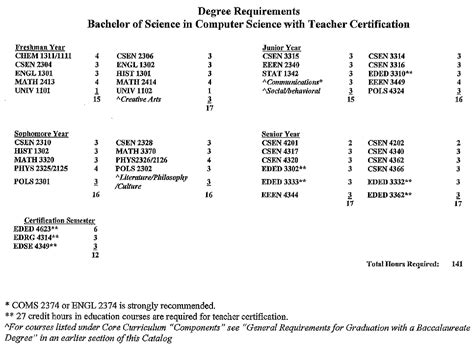Overview
The CS minor at Texas A&M University offers students an opportunity to develop a strong foundation in computer science principles and gain valuable hands-on experience. It is an excellent complement to any major that requires computational thinking or data analysis skills.

Why CS Minor Matters?
In today’s rapidly evolving technological landscape, having a foundation in computer science is becoming increasingly crucial for success in various fields. The CS minor provides:
- Enhanced Problem-Solving Skills: Trains individuals to break down complex problems and find efficient solutions using computational approaches.
- Data Literacy: Equips students with the ability to understand, analyze, and interpret large datasets, which is essential in data-intensive industries.
- Career Advancement: Opens doors to roles in software development, data analytics, artificial intelligence, and other high-demand tech fields.
- Graduate School Preparation: Provides a strong foundation for pursuing advanced degrees in computer science or related disciplines.
Benefits of CS Minor at Texas A&M
The CS minor at Texas A&M offers numerous benefits to students:
- Rigorous Curriculum: The program features a comprehensive curriculum that covers core concepts in computer science, including programming, data structures, algorithms, and software engineering.
- Hands-on Projects: Students have the opportunity to apply their knowledge through assignments, projects, and research experiences.
- Dedicated Faculty: The minor is taught by experienced faculty members who are passionate about teaching and are actively engaged in research and industry collaborations.
- Industry Connections: The university has strong relationships with major tech companies, providing students with opportunities for internships, networking, and career development.
Coursework and Requirements
The CS minor consists of 18 credit hours of coursework, including:
-
Core Courses:
- Introduction to Computer Science I (3 hours)
- Introduction to Computer Science II (3 hours)
- Data Structures and Algorithms I (3 hours)
- Data Structures and Algorithms II (3 hours)
-
Elective Courses:
- Choose 6 credit hours from a list of approved electives, such as:
- Databases
- Object-Oriented Programming
- Artificial Intelligence
- Cloud Computing
- Choose 6 credit hours from a list of approved electives, such as:
Applications of CS Expertise
The skills acquired through the CS minor can be applied in various fields, including:
- Software development
- Data science
- Machine learning
- Cybersecurity
- Computational biology
- Financial engineering
By leveraging their computing knowledge, graduates can design innovative solutions to real-world problems and create cutting-edge technologies that shape the future.
Student Testimonials
“The CS minor at Texas A&M provided me with a solid foundation in computer science, which helped me launch a successful career in software engineering.” – Emily Carter, Class of 2020
“The hands-on projects and industry connections through the minor were invaluable in preparing me for the job market.” – Michael Jones, Class of 2022
FAQs
1. Do I need to be a computer science major to pursue the CS minor?
No, the CS minor is open to students from any major.
2. How can the CS minor enhance my non-computing major?
It provides problem-solving, analytical, and data management skills that are essential in many industries.
3. Are there any financial aid opportunities for CS minor students?
Yes, scholarships, grants, and assistantships may be available to qualified students through the university or the CS department.
4. What are the career prospects for graduates with a CS minor?
Graduates are well-positioned for roles in software development, data analytics, and other high-demand tech fields.
5. Is the CS minor offered online?
Currently, the CS minor is not available online.
6. Can I transfer credits from other institutions towards the CS minor?
Yes, transfer credits may be considered on a case-by-case basis.
Conclusion
The CS minor at Texas A&M University is an exceptional opportunity for students to acquire in-demand computer science skills and enhance their career prospects. Its rigorous curriculum, experienced faculty, and industry connections provide students with the knowledge, experience, and network to succeed in today’s competitive tech landscape. By pursuing the CS minor, students can unlock their full potential and become leaders in the field of computing.
Tables
Table 1: Coursework Requirements for CS Minor
| Course | Credit Hours |
|---|---|
| Introduction to Computer Science I | 3 |
| Introduction to Computer Science II | 3 |
| Data Structures and Algorithms I | 3 |
| Data Structures and Algorithms II | 3 |
| Electives (choose 6 credit hours) | 6 |
Table 2: Applications of CS Expertise
| Field | Applications |
|---|---|
| Software Development | App design, coding, testing, deployment |
| Data Science | Data acquisition, analysis, interpretation |
| Machine Learning | Predictive modeling, data classification |
| Cybersecurity | Network security, threat detection, risk mitigation |
| Computational Biology | Drug design, gene sequencing, bioinformatics |
| Financial Engineering | Financial modeling, risk analysis, trading strategies |
Table 3: Benefits of CS Minor at Texas A&M
| Benefit | Value |
|---|---|
| Rigorous Curriculum | Core concepts and advanced topics |
| Hands-on Projects | Practical application of knowledge |
| Dedicated Faculty | Experienced and supportive educators |
| Industry Connections | Internships, networking, career development |
Table 4: Student Testimonials
| Student | Quote |
|---|---|
| Emily Carter | “Provided a solid foundation for my software engineering career.” |
| Michael Jones | “Hands-on projects and industry connections were invaluable.” |
